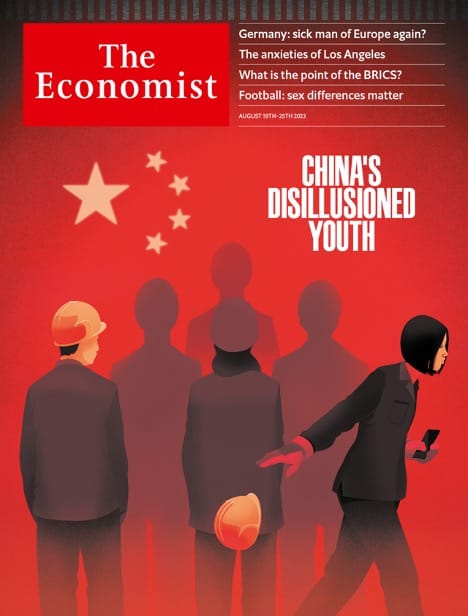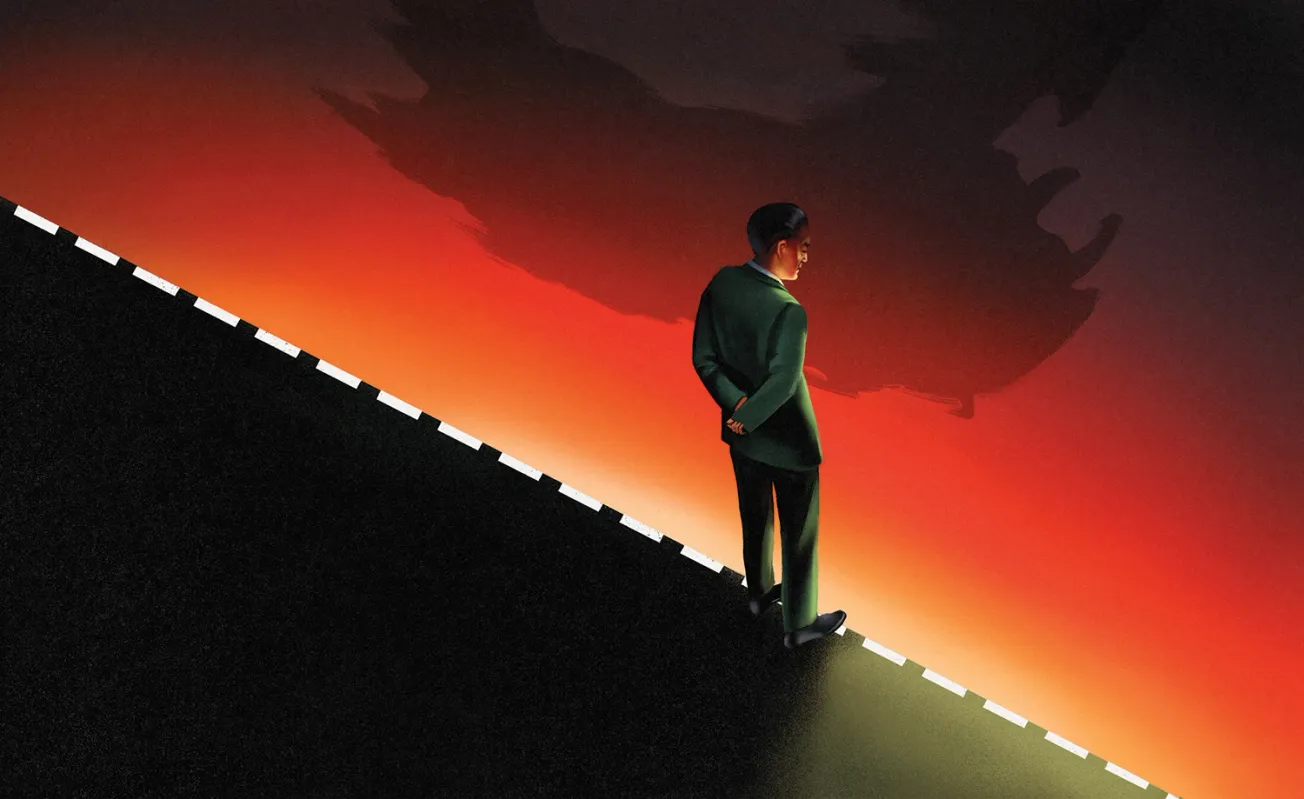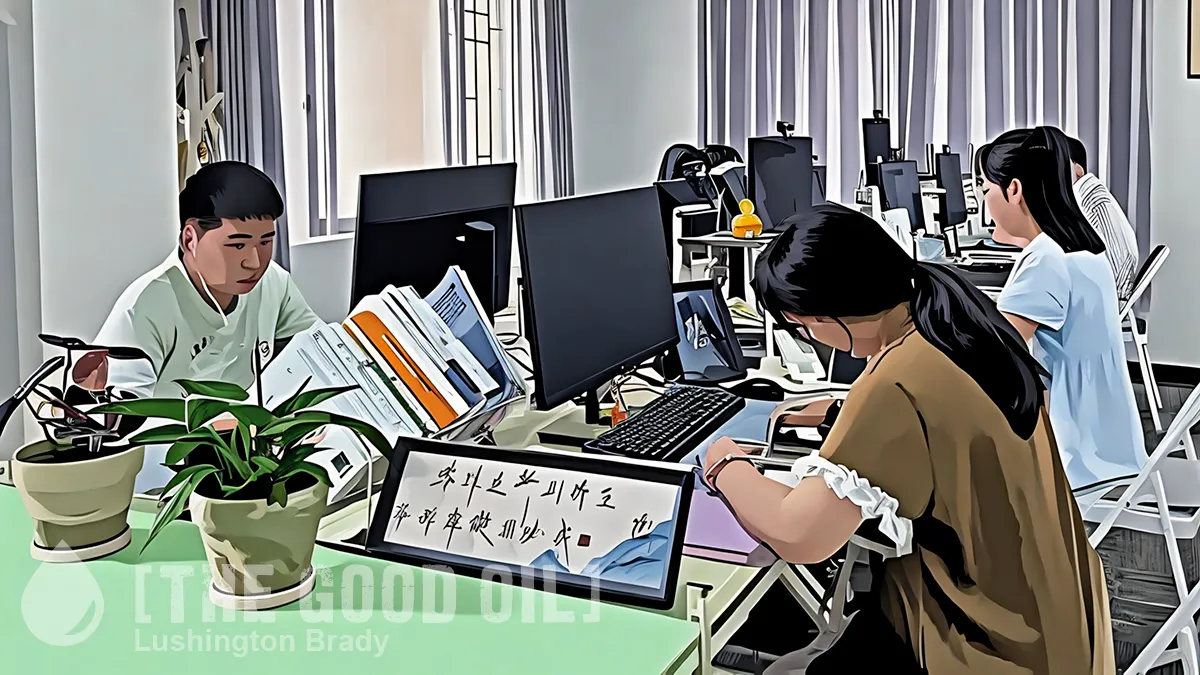Table of Contents
Louis T. March
Louis T. March has a background in government, business and philanthropy. A former talk show host, author and public speaker, he is a dedicated student of history and genealogy. Louis lives with his family in the beautiful Shenandoah Valley of Virginia.
China is in big trouble. Now before any of you Sinophobes start high-fiving about this, just remember that China is not alone. The US and Russia, among others, are also in trouble, but that’s beyond the scope of today’s titillating treatise.
China’s challenge? Demographic collapse. Consider: China’s birth rate has declined 40 per cent in the last five years. The government just released 2022’s fertility rate, 1.09, one of the world’s lowest.
Last year China had only 9.56 million births; its population decreased by 850,000, the first decline since Mao’s Great Leap Forward, which was the largest non-wartime slaughter ever. More than 40 million perished from starvation, state terrorism and disease.
Fewer than 8 million births are projected for 2023, the lowest since wartime 1939.
Also in 2022, the number of Chinese women aged 25-35 (official childbearing age) decreased by four million and there was the highest recorded death rate since the Cultural Revolution (1974).
The UN forecasts that China will shrink by 109 million by 2050, triple its projection of four years ago.
A recent South China Morning Post headline spelt it out in no uncertain terms: “China population: society must accept new norm of low births to better respond to demographic crisis, professor says”. The professor is Fudan University’s Shen Ke. He says there will be no meaningful recovery in fertility and that planning should proceed accordingly.
Last week Time ran a similar story saying China must “accept the new normal” where “a sole young adult must become the breadwinner for not only his two parents but also his four grandparents.” The chilling message is: Children are becoming scarce. Get used to it.
An ageing workforce
The average age of China’s workforce is 39 and rising fast. The working-age population has fallen by over 40 million in four years.
Youth employment is at a record high (21.3 per cent) as a record number of graduates (11.6 million) enter the job market. The news is so bad that the National Bureau of Statistics quit releasing age-specific employment data. Talk about transparency! Reminds me of the “rich men north of Richmond” regime here at home.
Even Foreign Policy led with the ominous headline: “China’s Pensions System Is Buckling Under an Aging Population.” While FP jumps at the chance to run negative stuff about China, there’s no getting around the fact that upside-down population trends mean trouble ahead.
China’s working age population will fall 12 per cent from 2030-2040 while the 60-plus cohort will increase by 2o per cent. By 2040, 28 per cent of Chinese will be of retirement age. Beijing wants to offset the looming labour shortage by boosting productivity with technology. Even if it is successful, worker-to-retiree ratios are woefully out of whack. Today five workers support each retiree; by 2030 it will be 4:1 and 2:1 by 2050.
Here is Foreign Policy’s comment:
Xi and the Chinese Communist Party face a critical decision as they weigh the competing priorities of securing funding for the welfare of older Chinese citizens and allocating resources to pursue technological self-reliance. The reality of a struggling economy dictates that they do not have sufficient resources to prioritize both. [Emphasis added]
China’s economy is in recession. As usual, the punditry is predicting an impending meltdown. We’ll see.
Life expectancy has risen to almost 79 years (higher than the US) and should reach 80 this decade. Meanwhile, the Chinese Academy of Social Sciences says the National Social Security Fund (NSSF) is on track to go belly up by 2035.
Fixing NSSF is a national priority. Xi’an Jiaotong University’s Professor Jiang Quanbao says: “The payment pressure on pension funds will further increase in the future as China’s growing elderly population is living longer and getting old before getting rich.”
Just last year long overdue reforms were enacted to allow private pension plans, specifically enterprise annuities and IRAs. Thirty million households signed up within a month. While this may be prudent financial planning, it also reflects the loss of public trust in an unsustainable government pension scheme.
Good luck, Beijing, in fixing this. Folks in Washington should pay close attention. We need all the help we can get to stave off our own Social Security collapse.
Family life
Modernity’s madness is savaging the Chinese family. The “lying flat” movement, previously reported by Mercator here and here has gone viral among Chinese youth who call themselves the “four nos” generation.
These “four nos youths,” abstaining from romantic relationships, marriage, property ownership, and parenthood, have attracted attention and rapidly become a societal trend. In July, an official survey in Guangzhou was shared online, revealing that nearly 10% of the same-age population fell into the category of “four unworthy youths.”
The Economist cover story this week nails it – China’s Disillusioned Youth:

A Zhejiang Sci-Tech University survey found that almost a third of students “have a negative attitude towards marriage.” The 2022 marriage rate was the lowest in 42 years. The rate for the first quarter of this year was even lower. A quarter of Chinese households are singles. In Hong Kong the percentage of childless couples more than doubled in five years to 43.2 percent. In a tour de force of understatement, the Hong Kong Family Planning Association called this “alarming.”
This comment on China’s Weibo platform went viral:
“Why is the birthrate falling? Because something is missing, that is ‘hope’. When it is difficult to get rich through hard work, and knowledge can hardly change one’s destiny, most people spend half their lives on a pile of reinforced concrete and their lives are worse than dogs. They don’t want to let the next generation suffer.”
Another disheartening 2022 titbit: the Baidu search engine reported that online searches for baby strollers fell 17 per cent, a 40 per cent drop in four years. Searches for baby bottles were down a third while those for elder care surged eight-fold.
According to University of Wisconsin demographer Yi Fuxian, “China’s demographic and economic outlook is much bleaker than expected. China will have to adjust its social, economic, defence and foreign policies.”
Future prospects
The ruling Communist Party faces hellacious headwinds: (1) a diminishing population means the days of cheap skilled labour are coming to an end, sapping industrial output; (2) an untenable national pension plan can’t provide for the fast-rising elderly cohort; and (3) consumer demand has cratered as the economy slides into recession – interest rate cuts have thus far not moved the needle.
There will be major changes. China’s retirement age is one of the world’s lowest at 60 for men, 55 for white-collar women, and 50 for female factory workers. That will change. Some provinces have implemented subsidies for childcare, fertility treatment, tax relief and increased family leave. That will increase. There is no further word on a proposal floated to require youthful Communist Party members to lead through their example and have two or more children.
Politics is downstream of culture, which is where the problem lies. This is by no means unique to China. The Middle Kingdom has tremendous bragging rights. There is social cohesion, something now missing in the West. The average school child is quite proud of being Chinese. Woke ideology teaches Westerners to hate their heritage, breeding self-doubt, demoralization and racial tension. Public spirit (or lack thereof) cannot be overlooked in geopolitical considerations.
Regardless of the daunting challenges, China will be an economic superpower for decades to come. Yes, much will change. However, history teaches that it would be a grievous mistake to underestimate the remarkably hardy Chinese civilization that has thrived and persevered through the millennia.
Anything could happen.









